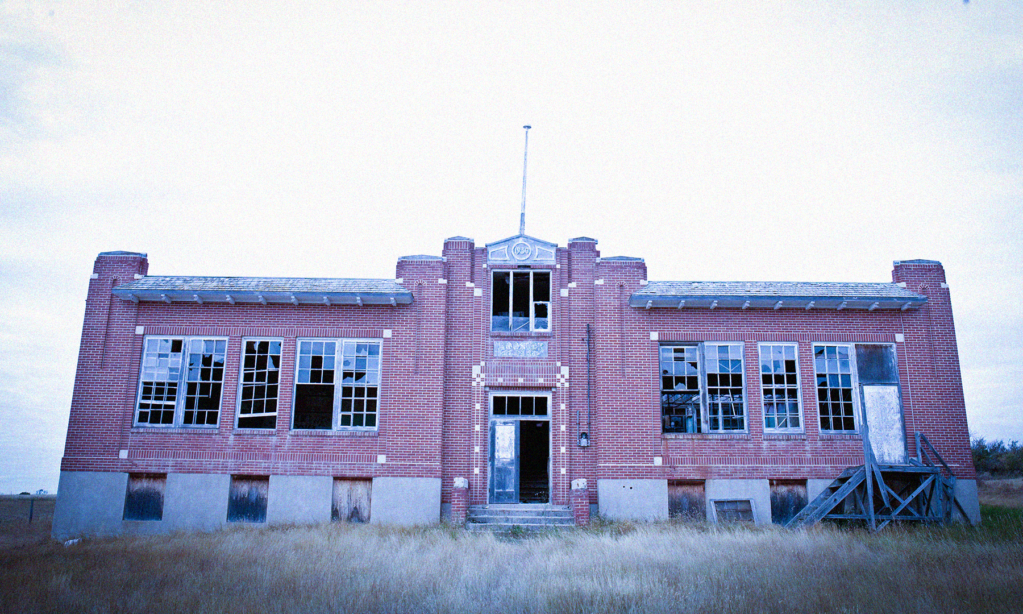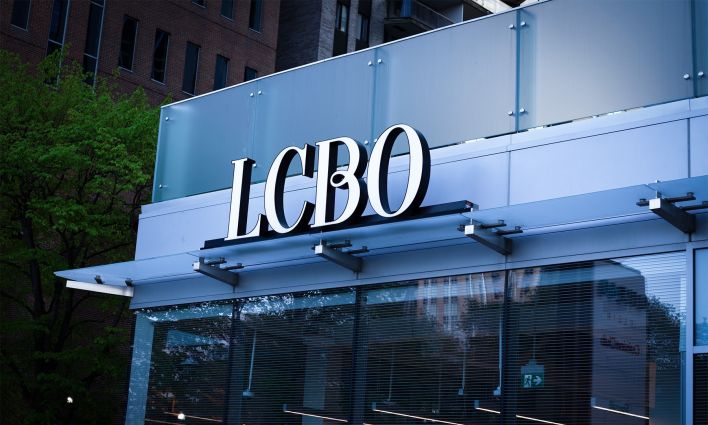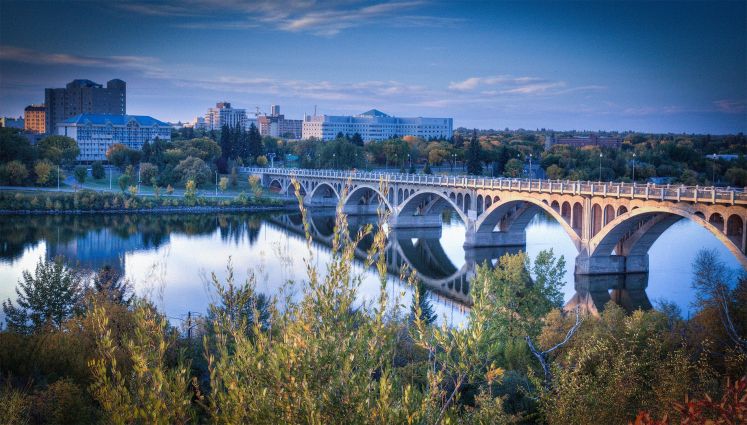Speaking in tongues. Corporal punishment so violent that students were left bruised and limping for days. Grown adults swarming a 2SLGBTQIA+ youth in their home to conduct an exorcism. The allegations leveled against a private Christian school in Saskatoon by 18 former students in early August were shocking.
The school, Legacy Christian Academy, is one of 25 private independent schools in Saskatchewan that receive public funding — in Legacy Christian’s case, $700,000 a year. The number of former students alleging abuse has since grown to over 50, with a sustained pattern of physical, psychological and sexual abuse from the early 2000s to present day. The students have launched a $25 million class action lawsuit, and a police investigation is underway.
Sounds horrific, right? Yet when the school year started in September, Legacy Christian’s doors were open. After days of pressure from the students, NDP Opposition and others, the Saskatchewan Party government did finally agree to appoint a supervisor for Legacy Christian and two other Christian schools implicated in the allegations. But it has refused calls to pause the school’s funding until the police investigation is complete.
The Legacy Christian scandal shone an unwelcome spotlight, for the Sask. Party government anyway, on the state of public versus private education in Saskatchewan. And make no mistake, there’s a political dimension to it. So it’s worth putting the scandal in a broader context.
Rewriting the funding formula
After health care, education is the second biggest budget item for Canada’s provincial governments. In Saskatchewan, both are in crisis. For some time the student population in Saskatchewan, fuelled by an influx of young immigrant families, has been surging. Concurrently, the challenges children face, whether due to intergenerational trauma, cultural dislocation or special needs, have been growing. But the provincial government has been stubbornly tightfisted in funding public education.
It started with a $55 million cut in an infamous 2017 - 2018 austerity budget (as noted by Shawn Davidson, Saskatchewan School Boards Association executive director), and funding has never recovered. It’s especially galling because in 2009 the government restricted SSBA members from collecting their own education revenue through municipal levies as they had long done. “When that happened, the government accepted a responsibility to adequately fund public education,” said Davidson. “For the first few years, they took that duty seriously. But that all changed in 2017 - 2018, and since then we’ve been facing a lot of challenges.”
While the provincial government is Scrooge McDucking the public school system, the March 2022 budget increased private school funding by $2.6 million to $17.6 million. The government also committed to a new private school funding formula, moving from 50 to 80 per cent of the public school per-student average to a flat 75 per cent for all private schools. This represented a small hit for some schools, but a significant increase for many others.
Social engineering
There were further allegations that students were sometimes pulled from class to campaign for local politicians who were in Legacy Christian’s “good book”. That’s in direct contravention of Legacy Christian’s charitable status with Canada Revenue Agency which prohibits partisan political activity. But the implications of this alliance go well beyond stumping for anointed candidates in elections. As we’ve seen with the Republican Party in the United States, evangelical Christians are a dominant force in modern conservatism. So the provincial government may see Legacy Christian (and other publicly-funded Christian schools in Saskatchewan) as natural allies.
Commenting on the Sask. Party government’s education policy direction in a recent media interview, Director of the CCPA Saskatchewan office Simon Enoch said “Conservatives have been hostile to public education almost since its inception. They have a longstanding idea that public schools are engaged in social engineering.”
There are two components to that. For Christian schools, it’s about creating a bubble to keep kids from being exposed to information, values and beliefs that clash with fundamentalist Christian doctrine. And for conservatives in general, there’s a fierce desire to push back against curricula and school practices regarded as being too liberal or “woke”.
While the fight has been especially intense south of the border, it has started to rear its head in Canada through Christian/conservative-backed candidates in school board elections, growing support for “parental choice” and private school options, and meddling with curricula. When Alberta’s United Conservative Party was elected in 2019, it scrapped the previous NDP government’s curriculum review and started its own. Several controversial consultants from the U.S. were recruited to participate, and the curriculum that was ultimately produced has been heavily criticized for being biased toward Christian European history, values and beliefs and dismissive of other cultures and perspectives.
"For Christian schools, it’s about creating a bubble to keep kids from being exposed to information, values and beliefs that clash with fundamentalist Christian doctrine."
Another “burning” issue for provincial governments in Alberta and Saskatchewan is climate change. Both governments are notoriously combative about taking meaningful steps to phase out fossil fuels to address climate change and help Canada reduce its sky-high per capita GHG emissions. There, they have an ally in the fossil fuel industry, which also has a presence in provincial classrooms.
University of Regina researcher Emily Eaton recently completed a study into fossil fuel influence in public education for the Corporate Mapping Project. When interviewing teachers on how they taught climate change to their students, she found that when teachers live in a fossil fuel community, there’s the initial pressure of knowing family, friends and neighbours may be financially (and emotionally) invested in the industry.
“There are also lots of fossil fuel-funded social media campaigns like Oil Respect and Canada’s Energy Citizens that try to foster a ‘grassroots’ identification with the industry,” says Eaton. “So a lot of teachers feel uncomfortable navigating that space because they feel that anything that is perceived as being critical of the industry will be seen as an attack on the community.”
Then there are the school materials. “At the provincial level there are ministry recommended learning resources,” says Eaton. “We interviewed someone at that level, and they said that because a lot of [government] resources are Ontario-based they do rely on industry to provide local content. The Saskatchewan Mining Association, for instance, is very active in curriculum development.”
Since the days of outright climate change denial are probably over, the fossil fuel industry’s main goal now, says Eaton, is to frame the issue in their favour. “One message they like to deliver is that while the industry does have environmental risks, it’s doing everything it can to mitigate them. So let us show you the good work we’re doing to recycle water and lower our emissions.”
Commitments to be net-zero by 2050 are a prime example. In a pull-quote or sound-bite it’s perhaps appealing, albeit mostly dependent on speculative technologies that have yet to be proven at scale. But since this commitment only covers the production of fossil fuels and ignores emissions generated when the fuel is actually burned (which is 80 per of total emissions today) the reality is far less impressive than a sound-bite would suggest.
“They also talk about how the regulatory system is so onerous, where they have to submit all kinds of paperwork on how many species are on the land they want to drill on,” says Eaton. “So they play up the idea that many politicians have spoken to – that Canada’s regulations are robust, therefore our industry is more environmentally friendly than other countries. But that’s not true, because Canadian oil, especially heavy oil in Saskatchewan and bitumen in Alberta, is very emissions intensive.”
The industry is also keen to frame climate change as a matter of individual action for students, says Eaton. “‘We recognize there’s an issue, they’ll say, and we encourage individuals to evaluate their fossil fuel use.’ Then they’ll roll out some tips like converting to LED lights and driving your car less. It’s a way for them to say, ‘It’s not our fault, we’re just responding to consumer demand.’ That insulates them from having any culpability.”
Fragmented Realities
As the convoy protests showed last February, strong (and growing) ties exist between Trump-style Republicans in the U.S. and Canada’s populist Christian/conservative movement. So it’s definitely instructive to watch developments down south, which are increasingly disturbing.
“Lately, education seems to have become much more of a flashpoint,” says Simon Enoch. “Things like school choice, vouchers, independent schools, attacking teachers, banning books, fights over curriculum, they are all ways for conservatives to exert control over a public system that they believe is propagandizing their children.”
Meanwhile, according to 2019 statistics from the National Center for Science Education, only two-thirds of U.S. biology teachers taught evolution in their classroom. That was up from 50 per cent in 2007.
“That’s where I think conservatives win in undermining the public school curriculum, by creating so much controversy that even something like evolution, which is considered pretty settled science, is off-limits,” says Enoch. “But the consequence of that is that a basic scientific principle is not being communicated to students.”
Enoch is interested to see if the Legacy Christian scandal has any impact on the Saskatchewan government’s commitment to private education. “With the measures in the last budget, the government was really betting on the idea of expanding independent schools,” he says. “So this scandal came at the absolute worst time. It shows how little regulation and oversight there is of independent schools and the people who teach in them.”
But will it deter the government? Enoch is doubtful. “I think for the government’s base, and activists in the [Sask Party] who want more school choice, they won’t want the government to change course on promoting independent schools as an alternative to the public system.”
The provincial government’s default defense against criticism of its education policy is “parental choice”. They fell back on it again on Nov. 3 when yet more allegations were leveled by former students that Legacy Christian taught a controversial Bible-friendly curriculum which, among other gems, teaches children that humans and dinosaurs coexisted.
Obviously, parents have a vested interest in their children’s education. But what about broader society? Surely we all have a stake in how our society’s children and youth are educated.
“That’s the whole point of having a provincial curriculum,” says Eaton. “I think it’s important that students get a base level of knowledge, but the problem we’re seeing with the rise of right-wing populism is these echo chambers of misinformation. Certainly, a base understanding of climate science isn’t going to mean every student will become a climate activist. But they should have some sense of the global scientific consensus on climate change. What they do with that is a different issue, but I don’t think society is well-served by having these increasingly fragmented ‘realities’.”







